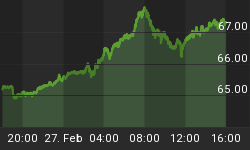Much of the attention, investment and flurry around blockchain technology is currently focused in the West where the utopian technology is being put into novel applications such as tracking veggies from the fields to store shelves.
Yet, the greatest impact of blockchain technology might eventually be felt in developing countries and frontier markets where it could revolutionize service delivery including government and corporate record keeping systems, property registrations, smart contracts and also as a means of exchange in countries with tight capital controls and highly volatile currencies.
Blockchain, Made in Kenya
One such country is Kenya, an East African nation that is rapidly becoming a key technology hub in the continent. In the capital city Nairobi, teams of government-funded startups, innovators, corporates and entrepreneurs team up in technology incubators, innovation hubs and accelerators to build ICT (information and communication technology) solutions that capitalize on the country's mix of opportunities and challenges.
Home to some of the continent's most impressive mobile applications and solutions, Kenya also owns one of the largest blockchain communities including BitHub Africa, a blockchain accelerator. BitHub provides consulting services for organizations looking to deploy blockchain solutions in Africa and the Middle East. BitHub has a strong focus on incubating micro-lending startups that provide access to credit as well as energy distribution, particularly smart grids.
And, global tech titans have sat up and taken notice. Related: Experts vs Investors: Who Has It Right?
IBM--a global leader in enterprise-grade blockchain solutions--has teamed up with Kenya-based food logistics startup, Twiga Foods, to develop blockchain-based micro-lending solutions. Twiga Foods operates a mobile-based B2B supply platform for retail outlets. IBM researchers analyze purchase data by Twiga Foods to determine creditworthiness of borrowers before applying blockchain technology to administer the entire lending experience. Loan amounts are typically small, but provide a useful source of quick credit for thousands of the country's SMEs.
Emerging Blockchain Markets
Mobile lending is booming in countries like Kenya due to high mobile penetration rates and the fact that these institutions mostly focus on the lower tier of the market that formal banks often neglect.
Mobile lenders such as Twiga Foods do not require things like credit scores, lending history and collateral making them much more accessible for micro-businesses compared to commercial banks.
The Kenyan government is currently exploring ways to use emerging technologies such as blockchain and AI to streamline service delivery in diverse sectors including education and land. The move by Kenya represent a welcome paradigm shift from the tedium of luddism that prevails in governments in many developing parts of the world. Indeed, the Kenyan government as well as scores others including Tanzania, Egypt and Nigeria have in the past treated blockchain technology with a lot of suspicion, even banning crypto use in some cases.
Several African countries--including South Africa, Nigeria and Sudan--now have emerging blockchain hubs that are working on various blockchain solutions with local flavors. Blockchain Academy in Cape Town, South Africa provides training in cryptocurrency and blockchain technologies for local startups and entrepreneurs. Meanwhile, the CDIN initiative in Nigeria educates the country's citizens on potential blockchain benefits. Nigerian blockchain startup, SureRemit, recently made history after successfully completing a $7-million ICO, the continent's largest ever.
By Alex Kimani for Safehaven.com
More Top Reads From Safehaven.com:
















